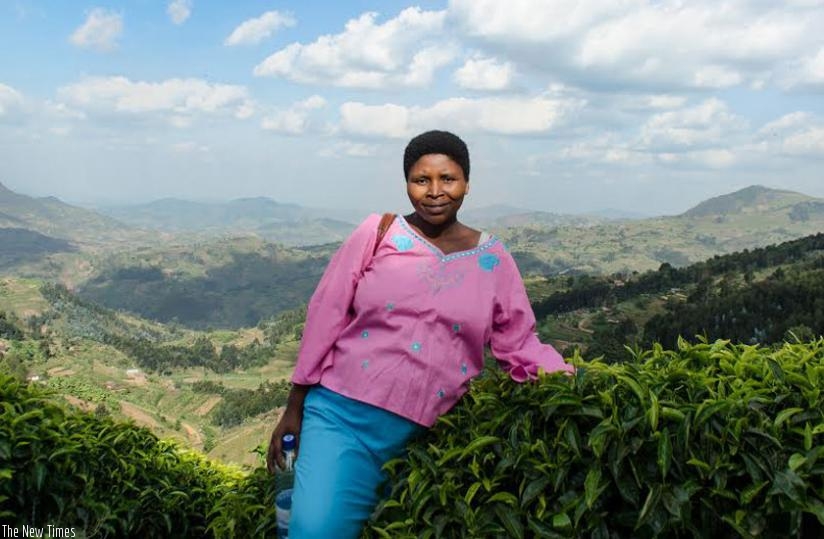Cultural tourism has firmly taken root in Rwanda with improved technology and ease of travel. Many tourists visit the country today and, as opposed to traditionally when they used to stay in hotels and only venture out to visit their favourite destinations, they now freely live and mingle with the locals, and, in the process, learn their culture.


Cultural tourism has firmly taken root in Rwanda with improved technology and ease of travel. Many tourists visit the country today and, as opposed to traditionally when they used to stay in hotels and only venture out to visit their favourite destinations, they now freely live and mingle with the locals, and, in the process, learn their culture.
Places like Red Rocks Camping Site in Musanze have developed a concept where tourists come and are encouraged to mix freely with the locals as they learn about their culture. The cultural exchange programme encourages tourists to take part in local activities, like brewing the traditional beer, urwagwa, learning how to make handicrafts, and generally share their stories around the traditional bonfire.
Now those wishing to visit the country have a place they can learn about local entrepreneurs and connect with them. An easy to navigate website, www.vayando.com, was developed by Vayando’s Scott Wilhelm and his business partner, Jason Seagle, to provide opportunity for entrepreneurs with an interest and motivation in sharing local activities, experience and skills to market and connect directly with travelers visiting their areas.
US-born Wilhelm says when he came to Rwanda in 2015, he fell in love with the country and decided that Rwanda is a perfect match for the innovative way to promote cultural tourism.
"Travel to developing countries is growing at double the rate of established northern markets, and will account for nearly 60 per cent of the tourism sector by 2030, or over one billion travellers annually,” he says. He adds that tourism ranks highly in terms of contribution to the economies of developing nations like Rwanda.
Having worked for several years in El Salvador as an American Peace Corps volunteer, where he says he spent most of his time interacting with rural communities, he wanted to use his experience to connect local entrepreneurs and tourists – providing income generating opportunities to entrepreneurs and "really cool, authentic” experiences for travellers.
The website enables travellers to browse profiles in the country they are travelling through and book to spend a day with an entrepreneur, or their co-operatives. All the entrepreneur needs is a basic cell phone to confirm and manage bookings, and receive their mobile money payments. Travellers get a secure local experience while entrepreneurs gain opportunity to sustain their livelihood or build their small business.
He says one of his proudest moments so far was when a group of Danish travellers visited a seamstress in a remote area outside Kibuye and invited him to tag along.
"The travellers booked a visit with a seamstress named Mama Prince and they invited me to join. Mama Prince was thrilled to have guests come from so far to learn about, and watch her showcase her work. The tourists were engaged in learning tailoring, and were surprised to discover how much work goes into making a traditional skirt,” says Wilhelm.
He adds that they also got to see a beautiful part of the country they would most likely have not seen, so that’s a bonus.
"At the time Mama Prince was pregnant so it was great to know that the significant income she earned that day would go toward helping her growing family,” he says.
Wilhelm adds that developing a thriving tourism activity around mountain gorillas has been a brilliant strategy, noting that it has had a positive impact. "However, in addition to the gorillas, why not learn about some of Rwanda’s micro-entrepreneurs? Our experiences aren’t shows or acts, we feature everyday people showcasing their daily chores. It’s the type of people I like to meet when I travel, and tourists enjoy the experiences as well,” he notes.
He says gorillas, parks, and the other main attractions could be complimented by Vayando’s offerings.
"There are many skilled entrepreneurs who could benefit from cultural tourism, but oftentimes don’t. Additionally, sometimes it is difficult for tourists to find something unique.”
He adds: "When you travel, it can be difficult to confidently step off the plane or bus and connect directly with local people who are not in the traditional travel guide, and know that your tourism dollars will have a positive impact in the area you visit.”
"Inversely, local people often have a valuable livelihood skill, trade, or micro-enterprise to offer - and are looking for opportunity - but can be excluded from the tourism sector, and lack ways of marketing services to travellers online, but we are changing that.”
To identify entrepreneurs, Vayando partners with reputable field partner organizations, which help identify entrepreneurs in communities where they work, and support them in creating online profiles.
Apart from Rwanda, Vayando also operates in Costa Rica, and is planning to create more networks in other countries. However, he says, he is for now enjoying connecting travellers and Rwanda, as well as working with talented Rwandan micro-entrepreneurs.
business@newtimes.co.rw


